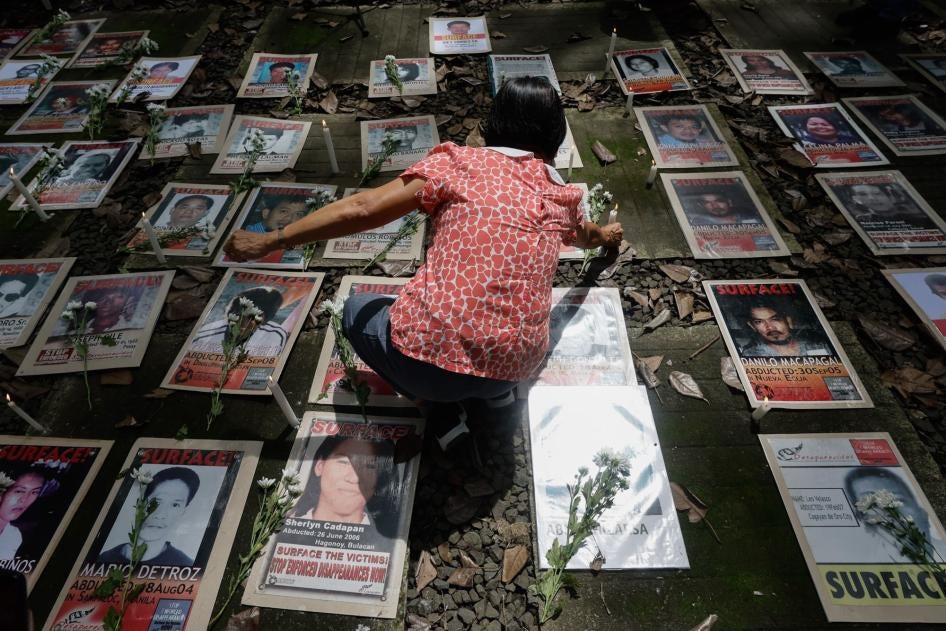(Bangkok) – The Philippine government practice of “red-tagging” has placed leftist activists and critics at serious risk under the administration of President Ferdinand Marcos Jr., Human Rights Watch said today in its World Report 2024. Government officials and their supporters repeatedly used traditional and online media to accuse groups and individuals of links to the country’s communist insurgency.
“The Marcos administration should end the pernicious practice of ‘red-tagging’ government opponents,” said Bryony Lau, deputy Asia director at Human Rights Watch. “Red-tagging is a form of harassment that can lead to deadly abuses, and runs counter to Marcos’s pledge to promote human rights.”
In the 740-page World Report 2024, its 34th edition, Human Rights Watch reviews human rights practices in more than 100 countries. In her introductory essay, Executive Director Tirana Hassan says that 2023 was a consequential year not only for human rights suppression and wartime atrocities but also for selective government outrage and transactional diplomacy that carried profound costs for the rights of those not in on the deal. But she says there were also signs of hope, showing the possibility of a different path, and calls on governments to consistently uphold their human rights obligations.
Philippine officials have for decades “red-tagged” leftists political activists, journalists, teachers, clergy, Indigenous leaders, youth activists, politicians, and others deemed supporters of the communist New People’s Army. Red-tagging surged under the administration of President Rodrigo Duterte and has continued under Marcos, with no evident efforts to end the practice. The targeted people often are physically attacked.
The Marcos administration has pledged to improve human rights in the Philippines and renewed government engagement with international actors such as the United Nations. During 2023, the Nobel peace laureate Maria Ressa and her news outlet, Rappler, were acquitted in a tax evasion case, while the longtime Duterte critic and human rights defender Leila de Lima was released on bail after nearly seven years in police detention. However, deep-rooted issues such as extrajudicial killings in the “war on drugs,” enforced disappearances, and the torture of suspects in custody remain widespread problems.









